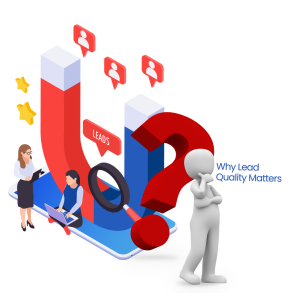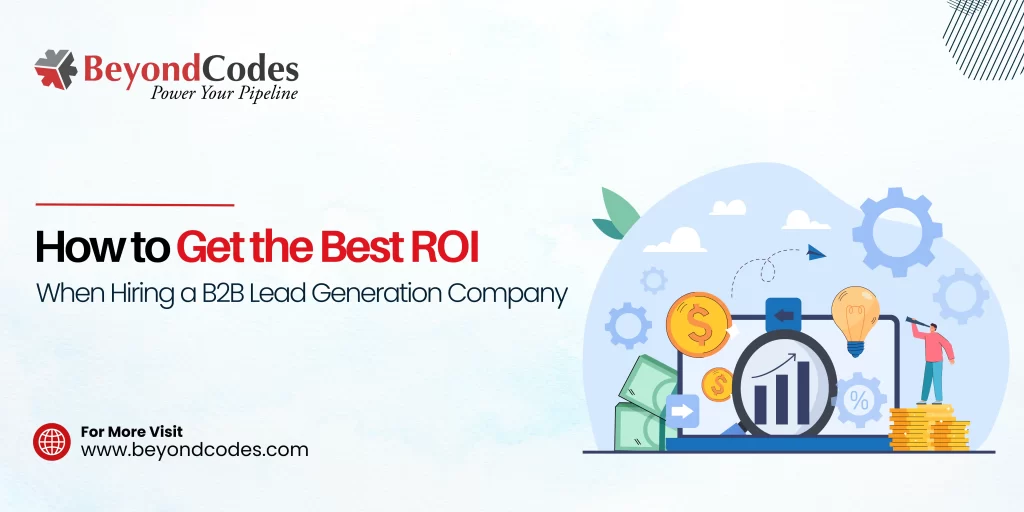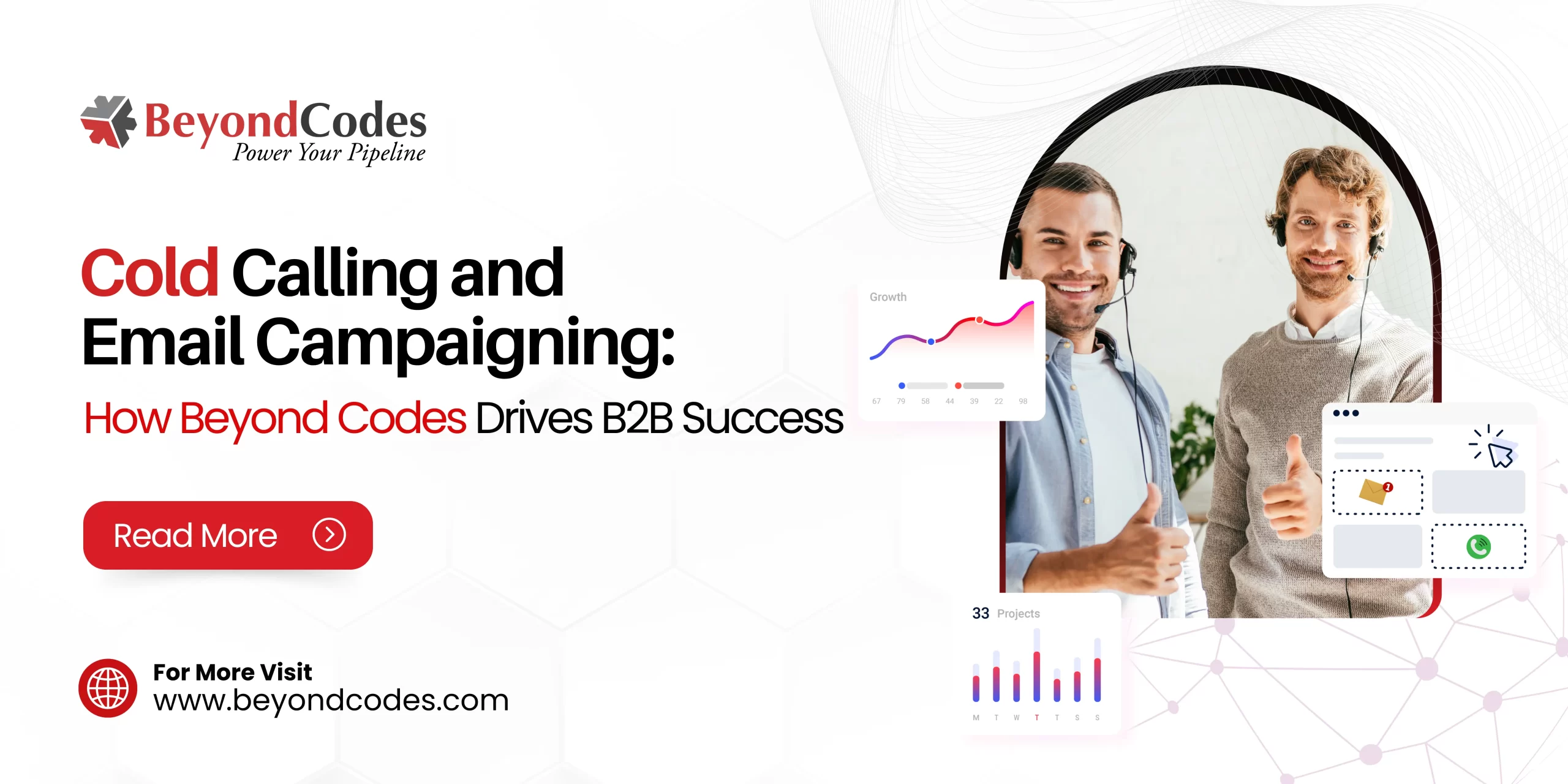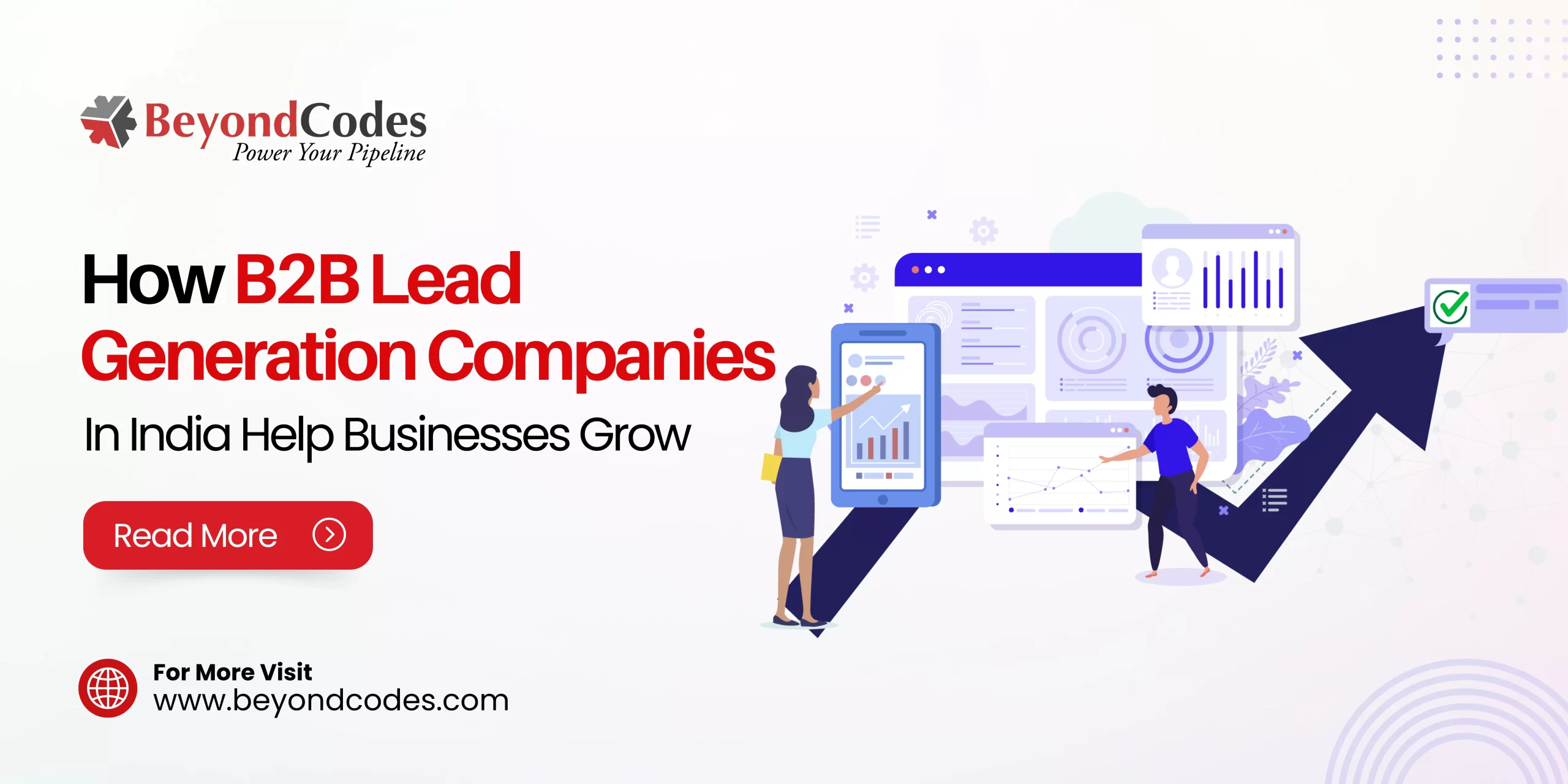Hiring a B2B lead generation company is a strategic investment for businesses looking to expand their customer base and enhance their sales pipelines.
While outsourcing lead generation can yield impressive results, ensuring the partnership delivers a good return on investment (ROI) is important. Without a clear strategy, businesses risk overspending on unqualified leads or strategies that don’t meet their objectives.
This comprehensive guide will walk you through actionable steps to maximize ROI when working with a B2B lead generation company.
1. Define Your Objectives Clearly
The foundation of any successful partnership starts with well-defined objectives. Identify what you aim to achieve before reaching out to a lead generation company. Your goals could include:
- Delivering a specific number of leads each month.
- Targeting decision-makers within particular industries, such as healthcare or technology.
- Expanding your market reach to new regions or demographics.
Clear objectives ensure the lead generation company understands your expectations and customizes its approach accordingly. For example, if you focus on generating leads for technology companies, your objectives include reaching out to CIOs, IT managers, or software development heads who align with your services.
Key Takeaway
Setting SMART (specific, measurable, achievable, relevant, and time-bound) goals allows you to evaluate the effectiveness of your lead generation efforts, ensuring you remain on track to achieve a high ROI.
2. Choose the Right Partner for Your Business
Selecting the right B2B lead generation company is critical. Not all companies have the expertise or resources to meet your business needs. To find the best fit:
- Look for Industry Expertise: Partner with a company that has experience in your sector. For example, if your business specializes in financial services, the lead generation company should understand the nuances of engaging CFOs, financial analysts, and other decision-makers.
- Review Their Track Record: Ask for case studies, testimonials, and examples of past successes. Companies with a proven history of delivering quality leads will likely provide a strong ROI.
- Assess Their Capabilities: Ensure the company offers a comprehensive range of services, including inbound and outbound lead generation, email campaigns, and LinkedIn outreach.
Additional Tip
During initial discussions, ask about their approach to targeting your ideal audience. A company that can articulate a clear plan for reaching potential clients is more likely to succeed in delivering results.
3. Understand Their Lead Qualification Process
A critical factor in achieving high ROI is ensuring the quality of leads generated. High lead volume doesn’t necessarily translate to success if the leads aren’t well-qualified. During the selection process, inquire about the company’s lead qualification criteria:
- Do they use frameworks like BANT (Budget, Authority, Need, Timeline) or similar methods to qualify leads?
- What steps do they take to verify the accuracy of lead information?
- How do they ensure that leads align with your target audience?
Focusing on lead quality helps reduce wasted time and resources spent on prospects unlikely to convert.
Why Lead Quality Matters

4. Build Realistic Expectations
Expecting overnight success can lead to frustration. The ROI from lead generation often takes time, particularly in industries with longer sales cycles. To avoid misunderstandings, set realistic expectations upfront. Discuss metrics such as:
- The expected number of leads generated per month.
- Typical conversion rates from lead to customer.
- Cost per lead (CPL) and how it fits within your budget.
Setting Benchmarks
Work with the lead generation company to build short-term and long-term goals. For instance, in the first three months, the focus might be on building a pipeline, while subsequent months aim to increase conversion rates.
Click Here:- How to Hire a Top-Performing B2B Sales Team: Key Skills and Strategies
5. Collaborate to Maximize Results
While the lead generation company brings expertise in outreach, your internal team holds valuable knowledge about your products, services, and market. Collaboration between your team and the lead generation company can significantly improve outcomes. Steps to ensure effective collaboration include:
- Sharing Buyer Personas: Provide detailed profiles of your ideal customers, including their roles, pain points, and buying behaviors.
- Giving Regular Feedback: Review leads periodically to ensure they meet your standards. Offer constructive feedback to refine the process.
- Aligning Sales and Marketing Teams: Ensure your internal teams are prepared to act on leads promptly and effectively.
Real-World Example
If you’re targeting leads in the manufacturing sector, sharing insights about specific industry challenges can help the lead generation company create more relevant messaging, increasing the likelihood of engagement.
6. Track Key Performance Metrics
Monitoring performance metrics is essential to measure ROI and identify areas for improvement. Some of the most important metrics include:
- Cost Per Lead (CPL): How much are you spending to generate each lead?
- Conversion Rate: What percentage of leads turn into opportunities or customers?
- Sales Cycle Length: Does the lead generation process shorten or lengthen your sales cycle?
- Customer Lifetime Value (CLV): How much revenue can you expect from each converted lead?
Proactive Monitoring
Schedule regular check-ins with the lead generation company to review these metrics. Use the insights to make informed adjustments to your strategy, ensuring continuous improvement.
7. Ensure Seamless Technology Integration
Technology is a cornerstone of modern lead generation. Ensure the lead generation company’s tools and platforms are compatible with your existing systems. Key considerations include:
- CRM Integration: Can the leads be directly imported into your CRM, such as Salesforce or HubSpot?
- Automation Tools: Do they use tools to nurture leads through email sequences or other automated campaigns?
- Analytics and Reporting: Can they provide detailed reports on lead performance and campaign effectiveness?
Why Integration Matters
Efficient technology integration reduces administrative work, enabling your sales team to focus on converting leads instead of managing data.
8. Optimize Your Internal Sales Processes
A steady flow of qualified leads is only valuable if your sales team can capitalize on them. Evaluate your internal processes to ensure you maximize each lead’s potential. Steps to consider include:
- Training your sales team to communicate effectively with prospects.
- Developing customized sales scripts for different industries or customer segments.
- Build clear protocols for promptly following up with leads.
Quick Actionable Tip
Studies show that responding to leads within the first five minutes significantly increases conversion rates. Ensure your team is equipped to act quickly.
9. Adapt to Changing Market Conditions
The B2B market is dynamic, with buyer preferences, economic trends, and competitive landscapes constantly evolving. To maintain high ROI, regularly assess and update your lead generation strategies. Consider:
- Shifting the focus to new industries or geographies.
- Exploring emerging marketing channels, such as webinars or account-based marketing.
- Refining your messaging to align with current customer pain points.
Staying Agile
Adapting to market changes ensures your lead generation efforts remain relevant and effective, regardless of external factors.
10. Prioritize Value Over Cost
While cost is an important consideration, it’s crucial to prioritize value. A company that charges higher fees but consistently delivers high-quality leads can provide a better ROI than a low-cost provider generating unqualified leads.
Evaluate Value Based On:
- Revenue potential of the leads.
- Efficiency in reaching decision-makers.
- The long-term impact on your sales pipeline.
Final Thoughts
Getting the best ROI when hiring a B2B lead generation company requires strategic planning, collaboration, and ongoing evaluation. You can transform your lead generation efforts into a sustainable growth engine by defining clear goals, choosing the right partner, and optimizing your internal processes.
Beyond Codes specializes in helping businesses across industries achieve measurable success with tailored B2B lead generation strategies. Partner with Beyond Codes to power your sales pipeline that drives lasting results and accelerates your business growth
Boost Your ROI with Expert B2B Lead Generation
FAQs
Answer.
Look for a company that aligns with your industry, understands your target audience, and has a proven track record of delivering results. Review case studies, ask for client testimonials, and ensure their services match your specific needs, such as targeting decision-makers in your sector.e selling skills. These are key to handling complex sales and building client relationships.
Answer.
Lead quantity refers to the number of leads generated, while lead quality focuses on the likelihood of those leads converting into paying customers. High-quality leads save time and resources by connecting your sales team with prospects who have a genuine interest and buying intent, ensuring a better ROI.
Answer.
The timeline for seeing ROI depends on your industry, sales cycle length, and the strategies employed. While you might see early results within a few months, meaningful ROI typically becomes evident after consistent effort over six to twelve months, particularly in B2B sectors with longer buying cycles.
Answer.
You can track performance through key metrics such as cost per lead (CPL), conversion rates, lead-to-opportunity ratios, and customer lifetime value (CLV). Regular performance reviews with your lead generation company ensure transparency and allow for strategic adjustments to optimize results.e LinkedIn to find and evaluate qualified candidates efficiently.
Answer.
Your sales team plays a critical role in converting leads into customers. They must respond to leads quickly, nurture relationships effectively, and use tailored pitches to address prospects’ needs. Collaboration between your sales team and the lead generation company is vital for maximizing ROI.







